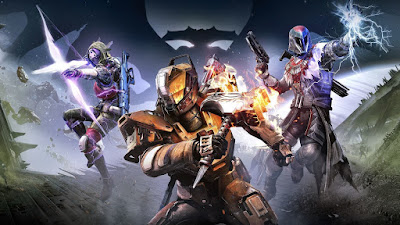Before you get the chance to finish
reading this interview I would like to help you all understand J-Rum. He is a
very humble human being that loves to give back to his music/gamer community.
Whether it was by sharing a couple of simple tutorials on his YouTube channel,
or for selling drum kits throughout producer-consumer sites (such as Superstar
O’s Industry Kits). No matter what the circumstance he is always looking to
progress the industry. He is a person I would consider a friend and a rival. So
without any more hold up, let's jump into the mind of J-Rum.
SD: Now before we start,
could you help give some insight into who you are and what you do in the
entertainment industry?
JR: My name is Joe Byrom better
known as J-Rum, and I am a 27-years-old professional music producer and mixing
engineer hailing from Daytona Beach, FL.
SD: So I understand, you just like
Superstar O sell leases to your instrumentals online. How is business
going for you? How has the market been in the last five years?
JR: Business has been a complete 180
to be honest. About 5 years ago, I believe I was riding a tidal wave and didn't
realize it... Meaning sales were AMAZING years back. The past few years have
truly been a test for me as far as continuing music as a career. It has been
rough... I had to serve tables again for a few months last year just to keep up
with bills. People underestimate the expense of running your music business...
taxes, graphic design, web design, hosting, promotion/ads, monthly fees for
websites, mixing plugins, virtual instruments, drum kits, accounting/CPA's,
etc.. Many of the things listed above are a monthly expense as well, not one
time expenses.
SD: When it comes to payment,
how would you help a stubborn client agree to your terms and avoid
the possibility of being underpaid?
JR: Very good question, this has
happened before. "No deal is better than a bad deal," my father told
me that. Meaning not doing business is better than being obligated in a
contractual agreement to something you don't like. But I am a very
understanding individual so I would do my best to try and make the deal fair
for all parties involved, but ultimately if the client was very stubborn I
would just pass on the deal if it's not best in my interest. That would, of course,
be my last move, I would try to make a deal work, I do have rent to pay
SD: When working
with multiple songwriters/producers on a single project.
What do you do to avoid any backlash when it comes to percentages?
JR: Can't we just make music and be
happy, sadly no.Which is why the music business is called a business for a reason. And
it took me a while to understand that... Even though I just want to make good
music and vibe out, there is business things that need to be handled. I try to be as
open and flexible as I can be regarding splits and percentages, ESPECIALLY if
its a larger project that could help my business and brand in the future.
SD: If an incident occurs while you
are in the process of making that said project, how would you help turn
things around and get your counterpart to focus on the end goal
(payment/potential clientele)?
JR: I would approach said parties
with respect but also with urgency. If my name is attached to the
project, I need to dot I's and cross my T's. I would do my best to reassure and
encourage the co-producers and writers that the project is important and worth
finishing.
SD: Do you have any tips to combat
people who use dirty tricks trying to get what they want in a deal; such
as renegotiating a verbal agreement trying to get more out of the deal?
JR: My manager before he passed away
blessed me with many ideologies and thought processes that help me to this day,
one of those is that... Just because you get a contract does not mean it's
final and you can't negotiate. I know this doesn't answer your
question, but it's not a bad thing trying to negotiate to terms you're happy with. Any tips for those kinds of people though... I guess just be open-minded, they are investing in your music, paying you for services so they
do feel they should be getting something in return, Just know once ANY
disrespect or attitude comes from this process quickly brings my open mind to close-minded.
SD: Now before we conclude this
interview, I had the liberty of coming across some gaming footage of yours.
How would you compare negotiating an agreement to keeping your
viewer happy while trying to profit at the same time?
JR: Thanks for watching the stream,
it is a bit different in the sense the viewer watching me has not invested
hundreds or even thousands of dollars into my business for music and mixing
services. Although one comparison that they both have in common is the buyer/viewer
is expecting something in return, do your best to be professional, prompt to
emails/replies and give the best experience to your client you can.
SD: Once again J-Rum thanks for
sharing your thoughts with my community. So before we both head off, tell
me how can we follow your movement to keep up with your future work?
JR: It's been a pleasure my friend,
thank you for the time as well. You can keep up to date on Twitter @JrumBeats
and my sites J-rum.com & MixedByRum.com Many blessings brother.










